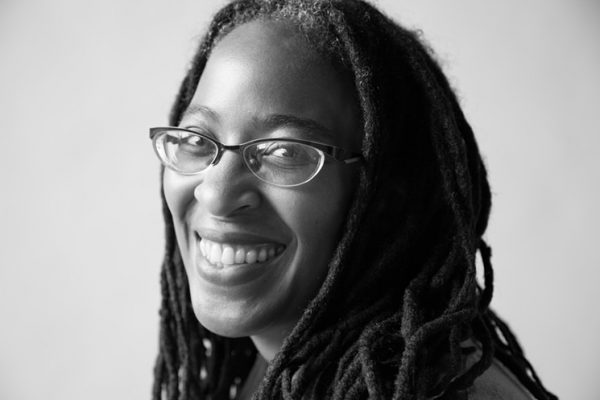
Last year, during Black History Month, Camille Dungy helped us celebrate by sharing a reading list, Ten Essential Black Authors to Read During Black History Month— and Every Month. The year before that, we featured her during Women’s History Month. We’ve also featured her two years in a row during National Poetry Month, 2017 and 2018.
When we were planning our post for today, we noticed a new article had just been published in Westword, a publication founded in 1977 in Denver, Colorado. The article, published yesterday, is Camille Dungy on Race, Motherhood and the Guidebook to Relative Strangers, and opens by saying, “At the start of Black History Month, with Guidebook to Relative Strangers coming out in paperback, we reached out to Dungy to discuss the book and the themes that drive her and her distinctly affecting work.”
Two of our favorite parts of the interview are the following:
Do you consider this book, and those similar to it, forms of protest? What’s your opinion on protest itself? Do you take part in direct action, or do you let your writing do that work for you? When we look at Guidebook to Relative Strangers and the associated canon, is it fair to say “This is what democracy looks like?”
Wow. What a cool question. I mean, yes, this is what democracy looks like. When more voices are published, when more stories are told, when more lives are seen on the page and taught in classes and read on the subway and talked about in book club and are not silenced and are not censored and are not said to be unworthy, we have a better chance at achieving an equitable democratic state. So in that way, I am certainly proud to be part of the cause. I also know that my book brings up subjects that some of us don’t have to think about every day, and that others of us have to think about daily if we have any chance of surviving in this world: police violence, medical trauma, the legacy of the Civil War and its causes, the condition of working parents in this country, to name just a few. Speaking out loud (or on the page) about what ails us as a nation so we can see it and maybe find a way to work to change, that’s a mode of protest. It’s also a path toward healing. But writing is not enough. I also have to be voting. I also have to be letting my elected officials know what’s important to me. I have to vote with my dollars. I have to participate in direct action. It’s not one thing versus another. I think we can do all the things.
And this,
How do you think Colorado fares in terms of race and equality? Are we on the right road, as a state, and where could we be doing better?
Another huge question. And too big to answer, really. It’s a big state. There are nearly six million experiences to take into account when thinking about such a question. I think the better question each of us should ask is this: How are we personally doing in terms of treating the people around us with equity, care, honesty, grace, support and genuine kindness? If we work to do this to the people we encounter daily, regardless of what they look like, we will be part of the sea change.
Make sure to read the rest of this article, and check out CSU’s schedule of events for Black History Month.